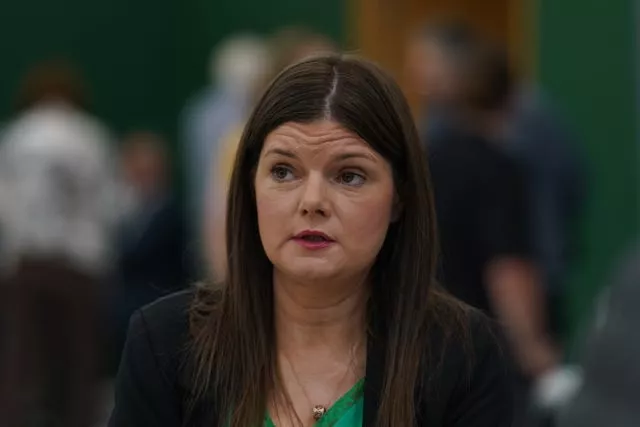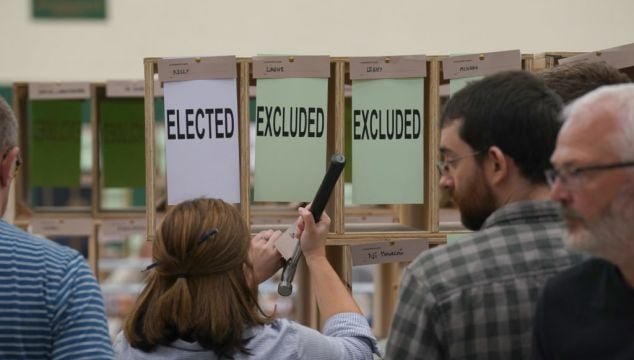The gruelling count in the Ireland South constituency was continuing on Wednesday, with political staff not hopeful that another candidate would reach the quota.
Fine Gael’s Sean Kelly was elected on the first count on Monday night, leaving 22 candidates vying for four seats in the 10-county constituency.
In the 10 counts that have taken place since then, and after 10 candidates were eliminated, no great gains were made.
Fianna Fail’s Billy Kelleher, who was just over 20,000 votes shy of the quota after the first count, has gained little more than 3,000 transfers, casting doubt over whether he will reach the quota.
After Mr Kelleher’s 90,000-odd votes, next is Independent TD Michael McNamara on 62,591 votes, Fianna Fail’s Cynthia Ni Mhurchu on 58,278, and outgoing MEP Mick Wallace on 57,989.
Sinn Féin TD Kathleen Funchion (53,655) and the Green Party’s Grace O’Sullivan (50,576) are also in the running.

The transfer votes of Ms Funchion’s running mate, Paul Gavan, and Mr Kelly’s running mate, John Mullins, as well as those of the Social Democrats’ Susan Doyle and Labour’s Niamh Hourigan, are expected to be crucial on who claims the final MEP seat in Ireland South.
The process of transferring votes between the South’s candidates, as per Ireland’s proportional representation, has taken longer than had been estimated by observers at Nemo Rangers GAA Club in Cork.
While a first count was called at 10pm on the first day of counting in the 2019 European elections, the first count results took 24 hours longer to announce this year.
The 2019 poll also saw a lengthy recount take place for days, after just over 300 votes separated Sinn Fein’s incumbent MEP Liadh Ni Riada and Ms O’Sullivan, a former Greenpeace activist.
Asked if the prospect of another taxing recount is looming over the count staff in the Cork sports hall, and whether that is extending proceedings, returning officer Martin Harvey told the PA news agency: “We’re always meticulous, recount or not.”

He said the ballot papers are very long, which makes sorting them more difficult, but added that the counters have “got to grips with that by now and they’re moving through it much quicker”.
“I don’t think any of these counters would even think about the recount situation, honestly. We’d always do a very, very thorough search and check.
“Every paper is checked and double-checked, every single cards that are completed with 50 votes are signed by two people and then checked by supervisors.
“That is the procedure we have used in general elections, in referenda, and this election previously and now.
“We are extremely careful. And the previous recount showed that, when we went to do the recount, it showed there was no real change in the situation after part of the recount and then they decided to call it off.”







